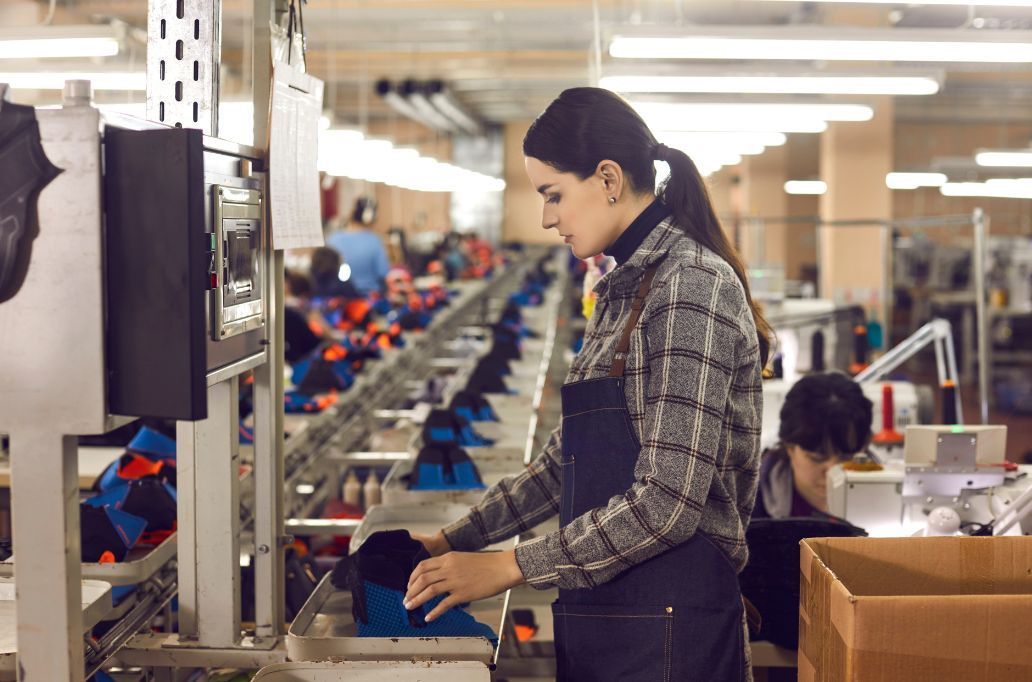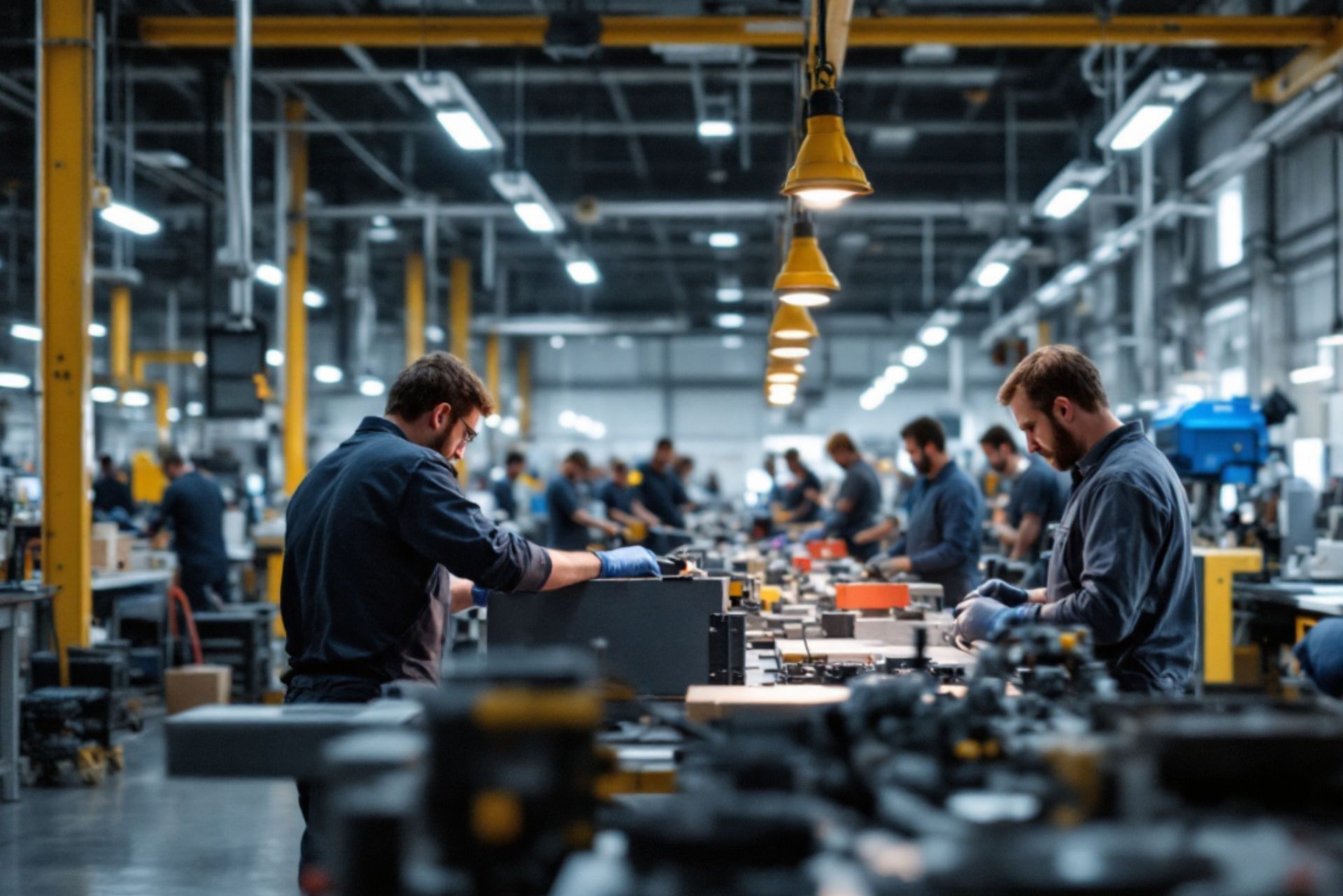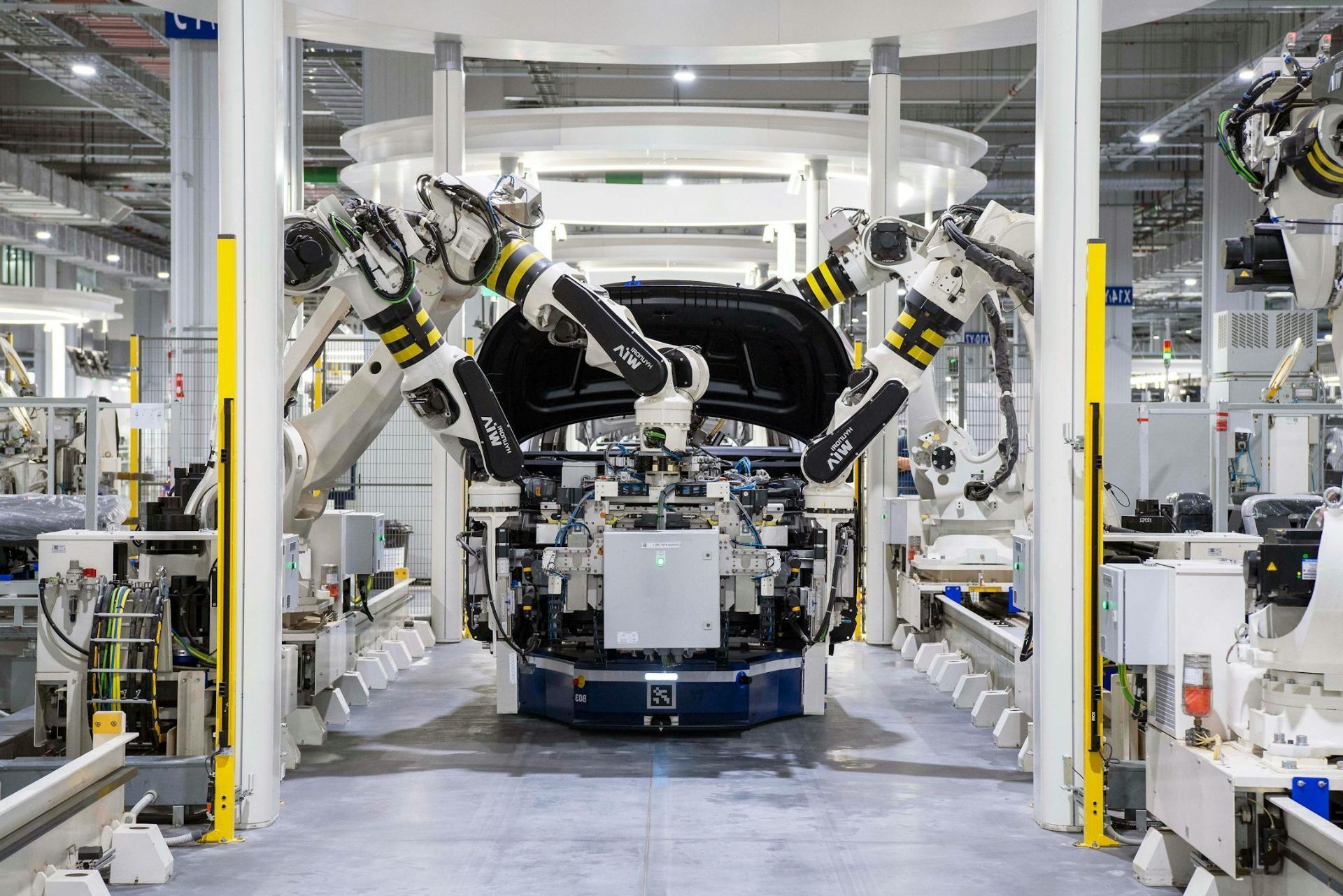
Index
When you think of Michigan, images of its vast lakes and bustling cities might come to mind. However, it is also the heart of manufacturing in the United States. This guide aims to provide you with a comprehensive understanding of manufacturing insurance, detailing its importance, types, cost factors, and future trends specific to the Michigan manufacturing sector.
Understanding the Basics of Manufacturing Insurance
Manufacturing insurance is a specialized form of coverage that protects manufacturing companies from various risks associated with their operations. As the backbone of the economy in Michigan, manufacturing plants face unique challenges, from equipment breakdowns to product liability. This type of insurance helps mitigate those risks, providing peace of mind to business owners.
Importance of Manufacturing Insurance
The manufacturing sector is susceptible to numerous unforeseen events, such as equipment failures, accidents, and legal claims. Manufacturing insurance is crucial because it safeguards against these risks, ensuring that businesses can recover and continue operations without incurring crippling financial losses.
Moreover, it fosters a culture of safety and compliance, which can lead to increased trust among stakeholders, including clients, investors, and employees. Understanding its importance is the first step towards developing a solid insurance strategy tailored to specific manufacturing needs. Additionally, having a comprehensive insurance plan can enhance a company's reputation in the marketplace, signaling to potential partners and customers that the business is committed to risk management and operational integrity.
Key Components of Manufacturing Insurance
Manufacturing insurance comprises several key components. The most common include property insurance, liability insurance, and workers’ compensation. Property insurance protects physical assets like machinery and inventory, while liability insurance covers claims arising from accidents or injuries to third parties.
Workers’ compensation insurance is essential for protecting employees who may become injured on the job. Additionally, many manufacturers opt for specialized coverages tailored to their unique processes and products, which enhances their protection against specific risks. For instance, product recall insurance can be invaluable for manufacturers of food and beverages, as it helps cover the costs associated with recalling defective products from the market. Furthermore, business interruption insurance can provide crucial financial support in the event that a manufacturing facility must temporarily close due to a covered incident, ensuring that operations can resume smoothly once the situation is resolved.

Navigating the insurance landscape can be complex, especially for manufacturers in Michigan. Understanding local regulations and identifying the right insurance provider are critical steps in securing appropriate coverage.
State Regulations for Manufacturing Insurance
Michigan has specific insurance regulations that manufacturing businesses must adhere to. It is essential for business owners to familiarize themselves with state laws about operational safety, worker rights, and insurance requirements. This knowledge not only helps in compliance but also informs smarter insurance policy choices.
The Michigan Department of Insurance and Financial Services oversees regulations that affect how manufacturing insurance is administered. Staying updated on these regulations can prevent potential legal issues and enhance overall security for manufacturing operations. Additionally, manufacturers should be aware of the Michigan Occupational Safety and Health Administration (MIOSHA) standards, which set forth safety protocols that must be followed to minimize workplace hazards. Compliance with these standards not only protects employees but can also lead to lower insurance premiums, as insurers often reward businesses that demonstrate a commitment to safety.
Identifying the Right Insurance Provider
Choosing the right insurance provider is paramount. Manufacturers are encouraged to research potential insurers thoroughly. Evaluate factors such as experience in the manufacturing domain, customer service quality, premium costs, and the breadth of coverage options offered.
Engaging with brokers who specialize in manufacturing insurance can also assist in finding suitable policies that meet specific operational needs. Networking with other manufacturers in Michigan can provide insights and experiences to aid in this decision-making process. Furthermore, it is beneficial to consider the
financial stability and claims history of potential insurers. A provider with a solid track record of prompt claims handling can make a significant difference during challenging times. Manufacturers should also inquire about value-added services, such as risk management consultations and safety training programs, which can enhance their overall insurance experience and contribute to a safer workplace environment.
Types of Manufacturing Insurance Coverage
Manufacturing insurance is not a one-size-fits-all solution. Several types of coverage specifically address the various risks faced by manufacturers.
Property Insurance for Manufacturers
Property insurance covers physical assets, including buildings, machinery, and inventory. For manufacturers, these assets are critical to day-to-day operations, making this coverage vital. In the event of damage due to fire, theft, or natural disasters, property insurance can help cover repair or replacement costs.
Additionally, business interruption insurance—a subset of property insurance—can help manufacturers recover lost income if their operations are halted due to disaster. Understanding the nuances of property insurance is essential for maintaining business continuity. Furthermore, manufacturers should consider the importance of regularly updating their property insurance policies to reflect any changes in their operations or asset values. This proactive approach ensures that they are adequately covered and can avoid potential gaps in coverage that could arise from expansions, renovations, or new equipment purchases.
Liability Insurance for Manufacturers
Liability insurance protects manufacturers against claims arising from injuries or damages caused by their products. This coverage is particularly critical for manufacturers producing consumer goods, as product liability claims can lead to significant financial repercussions.
There are different types of liability insurance, including general liability, product liability, and professional liability. Assessing the specific risks associated with your manufacturing processes can guide you in selecting the appropriate type of liability coverage. Additionally, manufacturers should stay informed about industry regulations and standards, as non-compliance can lead to increased liability risks. Regular training and audits can help ensure that manufacturing practices align with legal requirements, thereby reducing the likelihood of claims and fostering a culture of accountability.
Workers' Compensation Insurance
Workers' compensation insurance is mandated in Michigan, providing benefits to employees who suffer work-related injuries or illnesses. This insurance covers medical expenses, lost wages, and rehabilitation costs for injured workers.
Maintaining a safe workplace and implementing safety protocols can help minimize the number of claims and affect insurance premiums positively. Establishing a solid safety culture is not just advantageous from a moral standpoint; it also has financial benefits. Regular safety training sessions, employee involvement in safety committees, and the use of safety equipment can significantly reduce workplace incidents. Moreover, manufacturers can benefit from investing in ergonomic solutions and machinery that reduce strain on workers, further enhancing workplace safety and productivity while potentially lowering workers' compensation costs over time.
Cost Factors of Manufacturing Insurance in Michigan
The cost of manufacturing insurance varies significantly based on various factors unique to each business. Understanding these cost factors can help manufacturers budget effectively for their insurance needs.
Size of the Manufacturing Business
The size of the manufacturing business plays a significant role in determining insurance costs. Larger operations typically face more significant risks, leading to higher premiums. Factors such as the number of employees and the amount of machinery used also influence pricing.
Smaller manufacturers may benefit from lower rates, but they still need adequate coverage to protect their interests against potential losses. Additionally, as businesses grow, they may require more specialized insurance products, such as equipment breakdown coverage or product liability insurance, which can further complicate the cost structure. Therefore, it’s essential for manufacturers of all sizes to regularly review their insurance needs and adjust their policies accordingly to ensure they are adequately protected.
Type of Manufacturing Operations
The specific type of manufacturing processes a business engages in can affect its insurance needs and costs. For instance, high-risk operations that involve heavy machinery or hazardous materials typically require more comprehensive coverage.
Assessing the unique risks associated with specific manufacturing activities allows for better alignment of insurance policies with business operations. Manufacturers in industries such as automotive or aerospace may face additional scrutiny due to the potential for significant liability claims, while those in food production might need to consider contamination risks. As such, it is crucial for manufacturers to work closely with their insurance agents to tailor their coverage to the specific risks inherent in their operations, ensuring that they are not underinsured or overpaying for unnecessary coverage.
Number of Employees
The workforce size directly impacts workers' compensation costs. More employees can translate to higher premiums; however, maintaining a safe work environment can mitigate these costs. Insurance providers often evaluate safety records, training practices, and operational procedures when determining rates.
Implementing a robust employee training program can not only enhance worker safety but also potentially lead to reduced premiums over time. Furthermore, fostering a culture of safety can improve employee morale and productivity, which are invaluable to the overall success of the manufacturing operation. Regular safety audits and employee feedback can help identify areas for improvement, ultimately leading to a safer workplace and lower insurance costs. Additionally, some insurers offer discounts for businesses that demonstrate a commitment to safety and risk management, making it even more beneficial for manufacturers to invest in these initiatives.

Tips for Managing Manufacturing Insurance Costs
Managing insurance costs effectively is essential for manufacturers looking to thrive in a competitive market. Here are some practical tips to consider.
Regular Risk Assessments
Conducting regular risk assessments is vital for understanding the potential threats to your operations. By identifying vulnerabilities, businesses can implement measures to mitigate risks, ultimately leading to lower insurance premiums.
Engaging with insurance professionals can provide valuable insights into the specific risks your business faces, ensuring that your coverage remains effective and cost-efficient. Additionally, utilizing technology such as risk management software can streamline the assessment process, allowing for more frequent evaluations and quicker adjustments to your insurance policies as your business evolves.
Safety Training and Protocols
Investing in safety training initiatives profoundly impacts workers' compensation and liability insurance costs. Comprehensive safety programs not only protect employees but also demonstrate a commitment to workplace safety, which insurers often favor.
Regularly updating training protocols and ensuring all employees participate can go a long way in minimizing risks and insurance costs. Furthermore, fostering a culture of safety within the organization encourages employees to actively participate in safety measures, leading to a more engaged workforce and fewer accidents. Consider implementing incentive programs that reward teams for maintaining safety standards, as this can further enhance morale and reduce incidents.
Claim Management Strategies
Having effective claim management strategies can help keep insurance premiums low in the long run. Be proactive in addressing potential claims before they escalate into significant liabilities.
Documenting all incidents thoroughly and collaborating with your insurance provider to resolve issues efficiently will foster a good relationship with your insurer, potentially leading to better long-term rates. Additionally, analyzing past claims can reveal patterns that may indicate underlying issues within your operations. By addressing these root causes, not only can you reduce the likelihood of future claims, but you can also demonstrate to your insurer that you are actively working to minimize risks, which can further enhance your negotiating power during policy renewals.
Future Trends in Manufacturing Insurance
The landscape of manufacturing insurance is ever-evolving, influenced by technological advancements and changing industry dynamics. Here are some anticipated trends.
Impact of Technological Advancements
Technological innovations are reshaping the manufacturing sector. With the rise of automation, data analytics, and smart manufacturing, insurers are beginning to develop tailored policies that address these advancements.
Businesses integrating advanced technologies are encouraged to inform their insurance providers, as new tools may either alter their risk profile or present new opportunities for coverage adjustments. For instance, the implementation of Internet of Things (IoT) devices can lead to real-time monitoring of machinery, which not only enhances operational efficiency but also provides insurers with valuable data to assess risk more accurately. This data-driven approach allows for more personalized insurance solutions that can adapt to the specific needs of the manufacturer.
Evolving Risk Factors and Coverage Needs
The nature of risks faced by manufacturers is evolving. Cybersecurity has become a predominant concern, as manufacturers increasingly rely on connected systems and digital records. Insurers are beginning to offer cyber liability coverage as a crucial addition to traditional manufacturing insurance policies.
Moreover, the rise of global supply chains introduces additional complexities and risks, such as geopolitical tensions and natural disasters. As manufacturers diversify their supply sources, they must consider how these changes impact their insurance needs. Insurers are now focusing on providing coverage that not only addresses traditional risks but also encompasses the broader spectrum of challenges faced in a globalized market. Manufacturers should remain vigilant about emerging risks and consult with their insurance providers to adapt coverage to meet these evolving needs effectively. This proactive approach can help mitigate potential disruptions and ensure business continuity in an increasingly unpredictable environment.
In conclusion, manufacturing insurance is an essential component of operating a successful manufacturing business in Michigan. By understanding its importance, navigating the complex landscape, and adapting to future trends, manufacturers can ensure they are well-protected against potential risks and able to thrive in an ever-changing environment.

